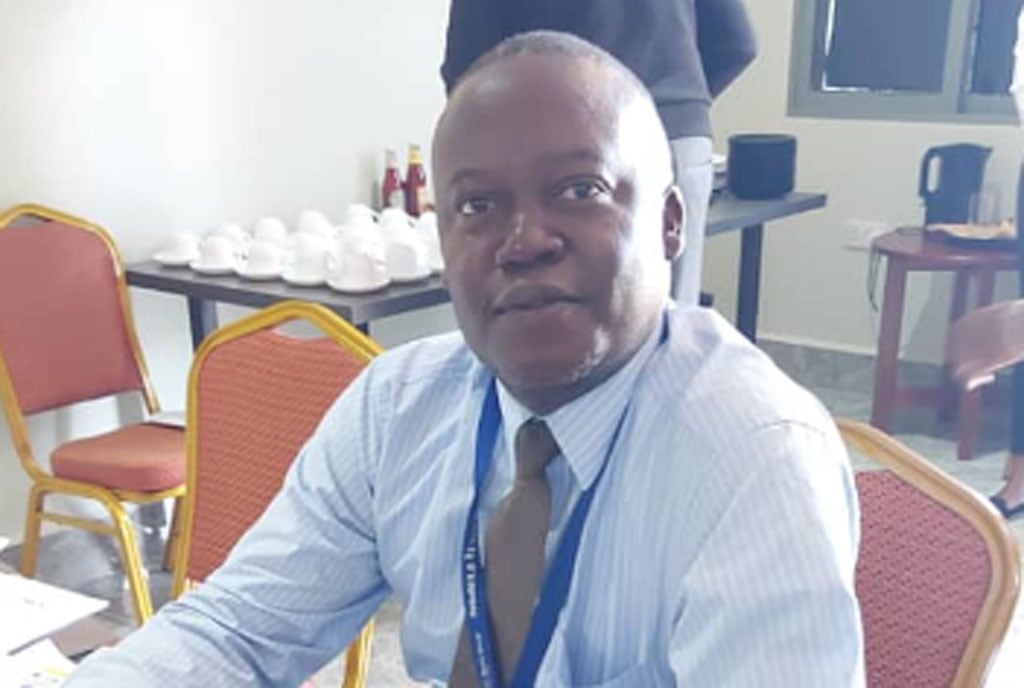How govt dealt blow to cult against polio programme

A health worker vaccinates a child against polio during the first day of the nationwide vaccination campaign in Mulimira Zone, Bukoto, Kampala on January 13, 2022. PHOTOS / ABUBAKER LUBOWA
What you need to know:
Mr Dan Mulumba, the sub-county youth chairperson for Budhaya and Mayuge Town Council, said the cult originated from Namayingo, which was still part of Bugiri, and settled in 12 of the 17 Villages that make up Budhaya Sub-county
Ms Florence Athieno, 16, a resident of Musirisisi Village, Budhaya Sub-county, struggles to walk. When she sits, it is evident that she is disabled.
Ms Francesca Ndira, her grandmother, however, said she was born normal, but became disabled at the age of seven when she suffered from a “mysterious disease which manifested as malaria”.
“She was perfectly normal and was even fetching water at the well; but she suddenly fell sick and I took her to hospital where she was put on intravenous medication. However, her condition deteriorated and she became disabled,” Ms Ndira said in an interview.
She added: “By the time she turned nine, I was carrying her like a baby. Currently, one of her hands and both legs are disabled and she can’t carry anything.”
Ms Ndira said it was during that time that Village Health Teams (VHTs) were making door-to-door visits to families and urging them to immunise against polio.
But also, Ms Athieno’s condition coincided with the activities of Ddini Nkalu, a cult which had gripped residents of Budhaya Sub-county, targeting all government programmes, including mass polio immunisation.
Mr Dan Mulumba, the sub-county youth chairperson for Budhaya and Mayuge Town Council, said the cult originated from Namayingo, which was still part of Bugiri, and settled in 12 of the 17 Villages that make up Budhaya Sub-county.
“As a religious cult, they resented modern technology, including immunisation and residual spraying of mosquitoes. They had made inroads in the villages of Namatu, Kawologoma and Nsavu,” Mr Mulumba said.
However, district officials said government has weakened them and the cult’s activities have reduced, while uptake of polio immunisation is on an upward trajectory.
“We have since talked to the locals and offered them counselling and health education about the government programmes, including telling them that the vaccines that meet international standards are available, safe and provided by the World Health Organisation (WHO),” Dr Stephen Kiirya, the Bugiri District health officer, said.
He added: “The cult was resistant against immunisation of polio, but we have only recorded one case (of polio) since 2010, and that was of a four-year-old girl in Kitoda Village, Bulesa Sub-county.”
Dr Kiirya said Ministry of Health and WHO have supported mass immunisation exercises in the district, which have kept the cult activities at bay, at least for now.
“The cult are a Muslim lot. However, they are still there but at minimum, although their activities were largely in Bulidha Sub-county,” he said.
Asked about Athieno’s incapacity, which happened around 2013, Dr Kiirya said he isn’t aware of the cause of her disability.
Mr William Kabeto, a VHT official of Ngulumo Village, and coordinator for Budhaya Parish, shared his frustration about the cult.
“While doing mass sensitisation against polio, I endured challenges from residents who claimed they had been warned by the cult that they would become lame or develop a rash if they are immunised against polio,” he said.
According to Mr Kabeto, the cult activities have reduced by 20 percent, adding that there are no more children who are disabled as a result of polio.
“We largely have those who have been disabled due to accidents or those the President keeps saying were disabled during Obote’s regime,” he added.




